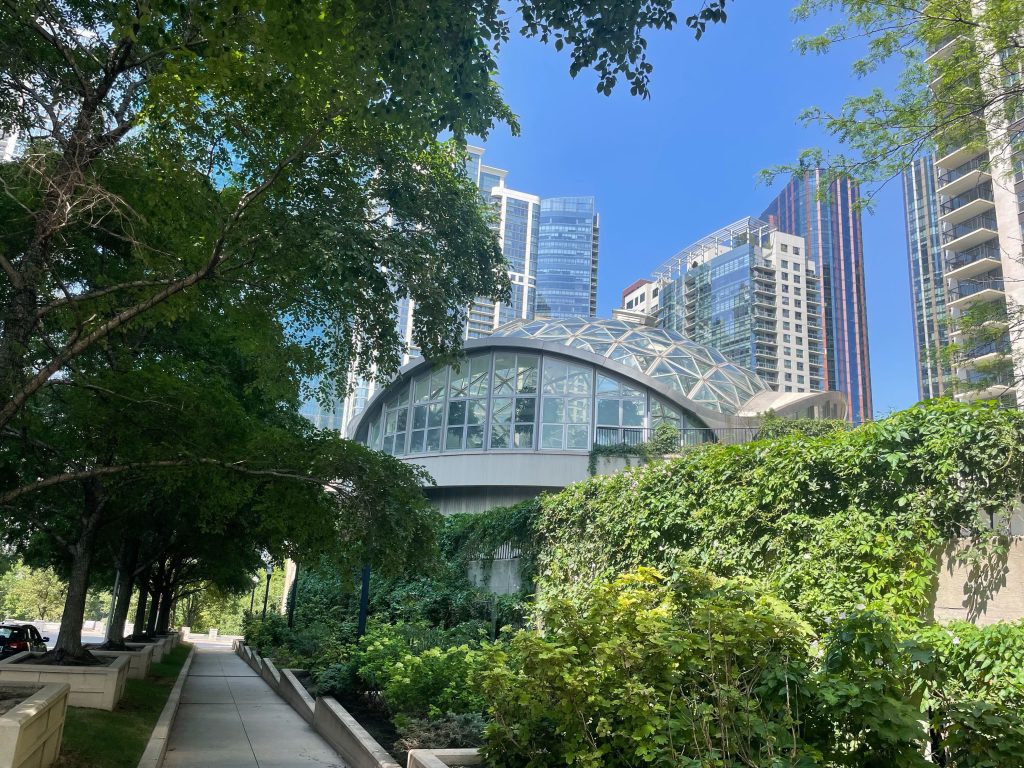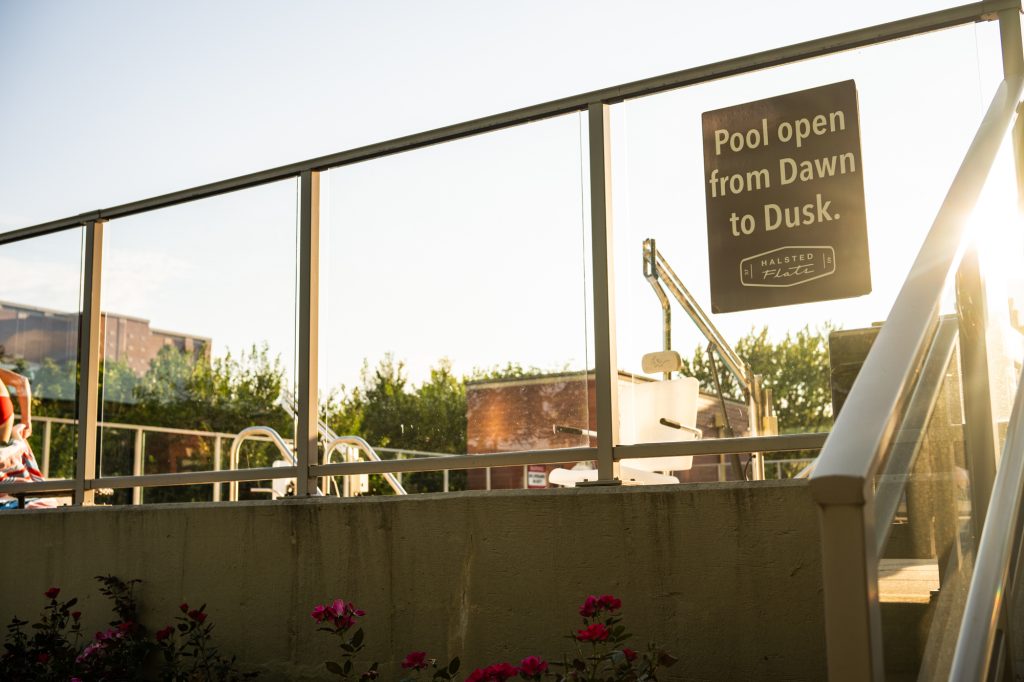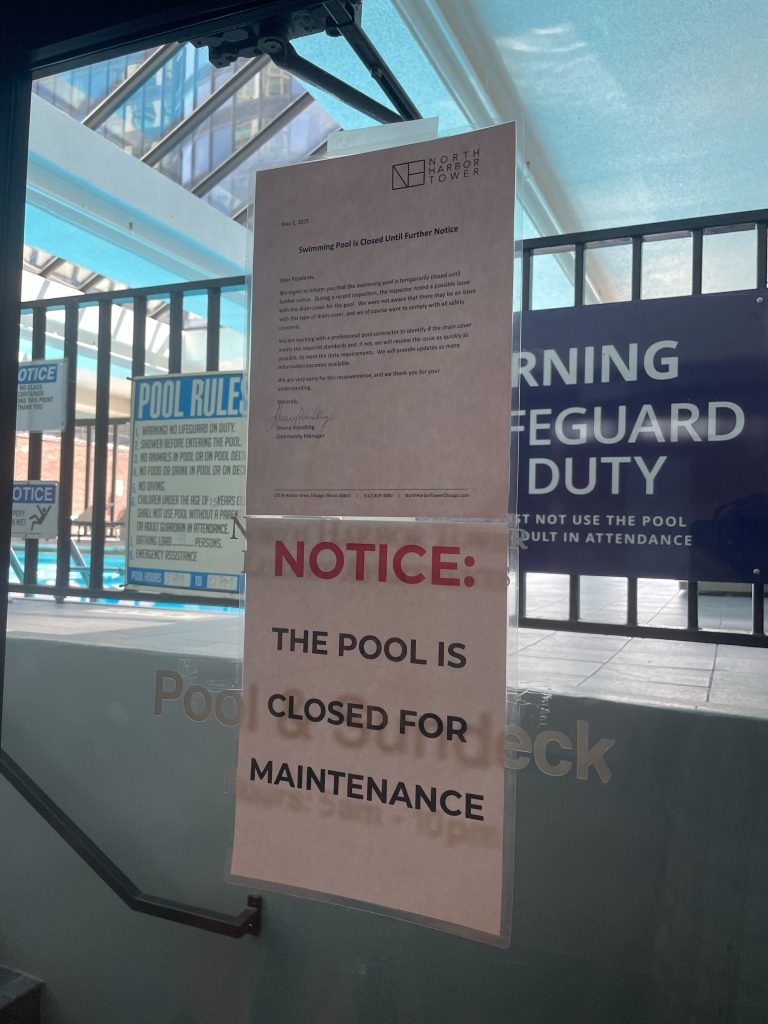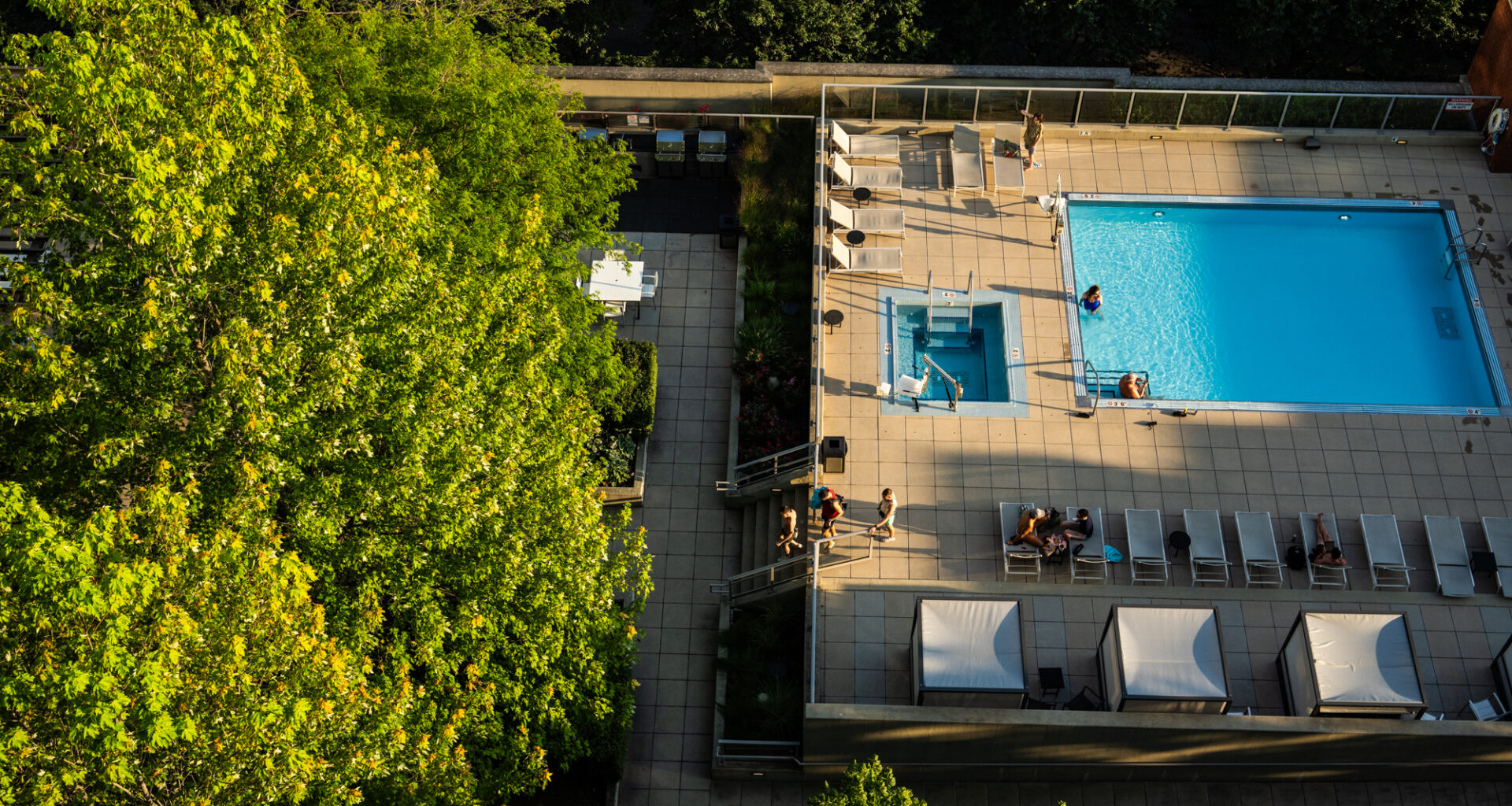CITYWIDE — David Kuta, who lives at 400 E. Randolph St. — a 40-story apartment building nestled between the Chicago River and Lake Michigan — normally likes to workout, swim and do aerobics in the building’s famous geodesic dome pool.
But the Illinois Department of Public Health shut down the pool for a drain cover issue, Kuta said, preventing residents from using the facility just as the heat of summer arrived.
“This is how I workout. I’m over 50 — I do water aerobics. I don’t lift weights,” he said. “It’s a big headache for us who are swimmers.”
Kuta is one of hundreds — if not thousands — of Chicagoans affected after the Illinois Department of Public Health shut down more than a dozen pools this year due to a similar issue with their drain covers. In a statement, a spokesman for the health department said they had shut down 16 pools for the drain cover issue, and another 16 for various other problems that include chlorine levels and equipment failures.
Part of the problem stems from the city shifting pool inspections over to the state, which is working to address a backlog of inspections to reopen pools, a slow processes that’s draining the patience of residents waiting months to get into their buildings’ pools.
Shutdown pools include also include the swimming area at 175 N. Harbor Drive Downtown and Halsted Flats at 3740 N. Halsted Ave. in Lakeview. The Illinois Department of Public Health did not provide a specific list of all the closed pools, but said in a statement that 11 of the 16 pools shut down for the drain cover issue were still closed.
 The geometric pool at 400 E. Randolph St. Downtown. Credit: Noah Asimow/Block Club Chicago
The geometric pool at 400 E. Randolph St. Downtown. Credit: Noah Asimow/Block Club Chicago
In 2017, updated federal safety standards required safer pool drain covers to prevent something called “suction entrapment,” said Michael Claffey, a spokesman for the state’s health department. Claffey described the issue as a “serious risk, especially to children.”
The 2017 law is an updated version of the Virginia Graeme Baker Act. The law dates back to 2008 and was implemented after the 7-year-old granddaughter of former Secretary of State James Baker became entrapped in a hot tub drain and died.
The 2017 update was written in a way that allowed pools with 2008-compliant drain covers to continue using that equipment until it expired, which generally takes about five years. But many of those pools are now having to replace drain covers that have since aged out of the law, said Jacob Martin, a spokesman with the Chicago Department of Public Health.
While the City of Chicago used to do a large number of pool inspections, Martin said the city passed off most pool inspection responsibilities to the state in 2024 because of the increased workload caused by hosting the Democratic National Convention.
Since then, the state has done most of the city’s pool inspections, which occur annually, Martin said.
 The pool at the Halsted Flats, 3740 N. Halsted St., in Northhalsted recently reopened, as seen on Aug. 11, 2025. Credit: Colin Boyle/Block Club Chicago
The pool at the Halsted Flats, 3740 N. Halsted St., in Northhalsted recently reopened, as seen on Aug. 11, 2025. Credit: Colin Boyle/Block Club Chicago
In interviews, building managers and local pool contractors described a excessively complicated and short-staffed state inspection and approval process that has led to prolonged pool closures and inspection delays that have stretched for months, if not years, even though the work to replace a drain cover is relatively simple and often takes less than a day of labor.
Three city or suburban-based pool contractors, who work on commercial pools and spoke on the condition of anonymity for fear of backlash from the state, said working with the Illinois Department of Public Health was so frustrating that they considered moving their business out of Illinois. They also said the permit process is hurting the city economy because it is delaying pool work that drives jobs for engineers, builders, lifeguards and other businesses related to the pool industry.
“The state is a nightmare,” one said. “I want to move because I can’t stand doing business here. This year, I have done not one commercial job because of the permitting process.”
“The state is a nightmare.”
pool contractor
If the state shuts down a pool due to the drain cover issue, it requires multiple visits from state public health inspectors to reopen the pool, as well as the submission of architectural and engineering renderings, furthering delays. To make matters worse, Illinois only has a handful of inspectors to cover the more than 3,000 pools statewide, causing massive backlogs at the state inspection office, building managers and contractors said.
“IDPH needs to hire more people and get them in there,” said a different contractor. “But also, make the process a little bit easier. It’s getting worse, not better.”
Lead times for inspections are stretching between two to four months, and building managers said inspectors have told them there could be hundreds of pools in front of them in the inspection queue.
Pools ‘A Big Amenity … A Big Loss’
Sandy Werner has lived at 175 N. Harbor Drive, a 55-floor apartment building in East Lakeshore, for five years. She has always liked using the building’s pool, especially in the summer.
“I’d have my grandkids come and they’d play in the pool,” Werner said. “There’s never been a problem with the pool. We use it a lot. And I’m sad it’s not open.”
 A notice outside the pool at 175 N. Harbor Drive Downtown. Credit: Noah Asimow/Block Club Chicago
A notice outside the pool at 175 N. Harbor Drive Downtown. Credit: Noah Asimow/Block Club Chicago
An email sent to residents of the building and shared with Block Club Chicago blamed the building’s pool closure on a variety of issues with the Illinois Department of Public Health.
“The pool has been temporarily closed due to a new state mandate requiring specialized drain covers for swimming pools,” the email said. “…The state informed us that the permit approval may take 2-4 months, due to the number of swimming pools that are affected by this new requirement, and the limited number of inspectors that can approve the permit.”
The building has gone so far as to offer discounted gym memberships at locations with open pools, as well as a limited number of passes that residents can use to go to neighboring buildings with pools.
The pool at Halsted Flats, one of the few high-rises in Lakeview with an outdoor pool, has been closed since it was shut down for the season in October 2024, frustrating many residents who consider it a major amenity for the building and neighborhood.
“It’s a centralized hub,” one resident said. “To take that pool down stinks. It’s a big amenity and a big loss.”
Although the pool was finally scheduled to open in the second week of August, the resident said she felt the building management company had handled the closure poorly because they offered very little explanation for the nearly 10-month delay, which seemed unusually long. She also said she is facing a major rent increase despite not having one of the property’s main amenities for nearly one year.
“I feel like our building has reacted with a giant shrug and a passing of the buck, without an ounce of sympathy,” she said.
In an email sent to building residents, building management company RMK blamed delays on a state “backlog,” providing a timeline of the permitting process that shows a lengthy back-and-forth between contractors and the state that lasted nearly one year.
“We’re ready when they are,” the subject line of the email read, referring to the state public health department.
Listen to the Block Club Chicago podcast:
